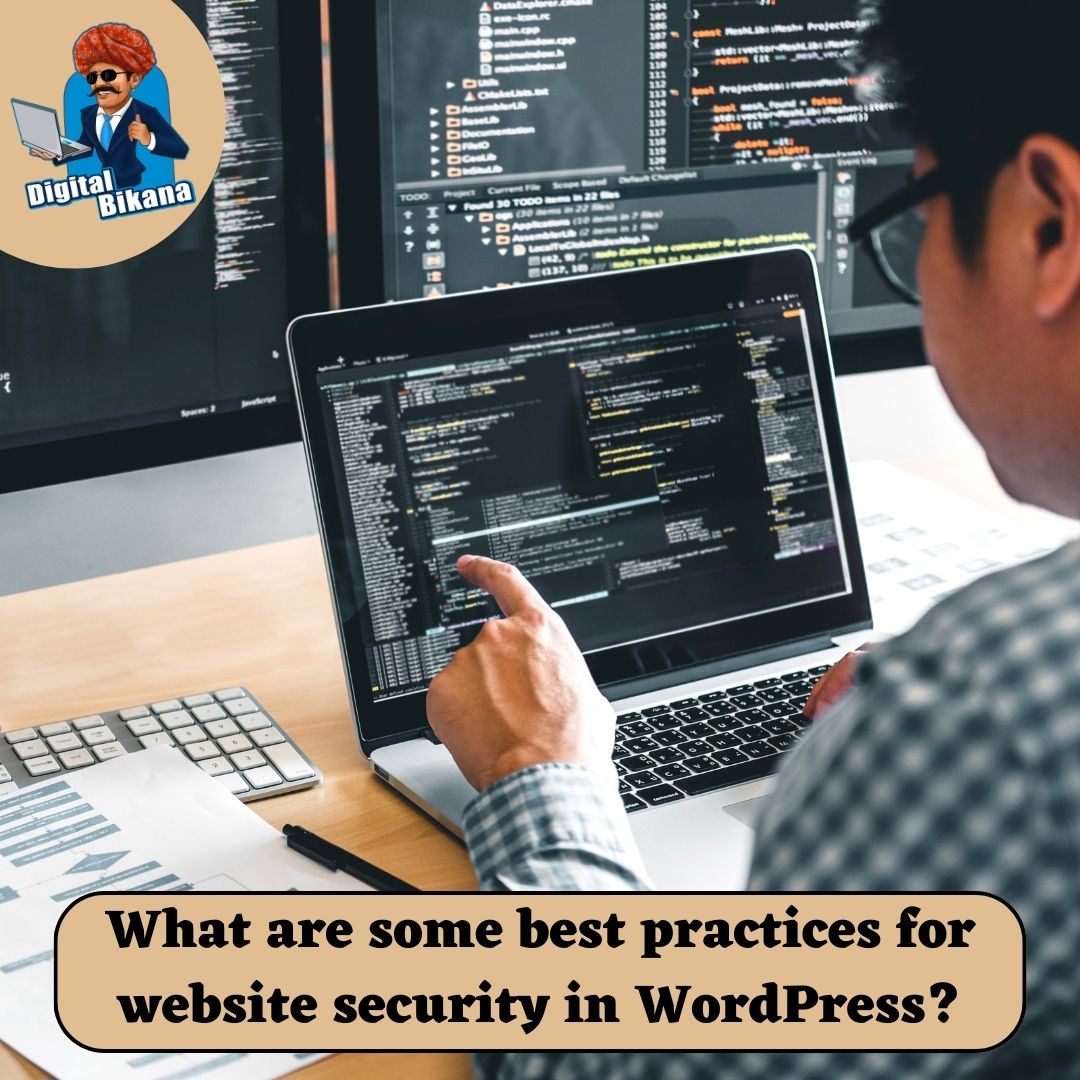What are some best practices for website security in WordPress?
In this article we are going to talk about What are some best practices for website security in WordPress? Website security is a critical aspect of managing a WordPress website. With the growing number of cyber threats and attacks, it is essential to implement robust security measures to protect your website, sensitive data, and the trust of your visitors.
What are some best practices for website security in WordPress?
In this article, we will delve into key best practices for website security in WordPress. By following these practices, you can significantly enhance the security posture of your website and reduce the risk of potential vulnerabilities and breaches.
1. Keep WordPress Updated
Regularly updating your WordPress installation, themes, and plugins is fundamental to maintaining a secure website. Updates frequently contain security patches that fix known vulnerabilities.You can either enable automatic updates or manually check for updates and install them promptly. Additionally, use reputable themes and plugins from trusted sources, as they are more likely to provide timely updates and security fixes.
2. Use Strong and Unique Passwords
Weak passwords are an open invitation to hackers. Create strong, unique passwords for your WordPress admin account, database, hosting account, and any other access points. Create strong passwords by using a mix of uppercase and lowercase letters, numbers, and special characters. To help manage and generate complex passwords securely, consider using a password manager.
3. Limit Login Attempts
Implementing login attempt limits helps protect against brute-force attacks. By limiting the number of failed login attempts, you can block suspicious IP addresses from repeatedly trying to gain unauthorized access. Plugins like “Limit Login Attempts” can enforce restrictions on login attempts and strengthen your website’s security.

4. Secure Admin Access
Protecting the admin area of your WordPress website is crucial. Rename the default “admin” username to something unique, as it is often targeted by hackers. Additionally, utilize two-factor authentication (2FA) to add an extra layer of security. Plugins like “Two-Factor Authentication” or “Google Authenticator” can be used to implement 2FA.
Read Also: How can you optimize the typography and font choices in a WordPress website?
5. Implement a Web Application Firewall (WAF)
A web application firewall acts as a barrier between your website and potential threats. It analyzes incoming traffic, detects and blocks suspicious activities, and filters out malicious requests. Plugins like “Sucuri” or “Wordfence” offer comprehensive security features, including firewall protection, malware scanning, and real-time threat detection.
6. Regularly Backup Your Website
Backing up your WordPress website is crucial in case of any security breaches or data loss. Regularly schedule automated backups of your website files and database. Store the backups securely in remote locations, such as cloud storage or external servers. Plugins like “UpdraftPlus” or “BackupBuddy” offer easy backup solutions.
7. Implement SSL Encryption
Secure Sockets Layer (SSL) encryption ensures that data transmitted between your website and visitors remains secure. It protects sensitive information, such as login credentials or payment details. Get an SSL certificate and set up your website to use HTTPS. Many hosting providers offer free SSL certificates through Let’s Encrypt.
8. Control File and Directory Permissions
Set appropriate file and directory permissions to restrict unauthorized access to critical files. Directories should typically have permissions set to 755, and files should be set to 644. Avoid using overly permissive settings (e.g., 777) unless necessary. Regularly check and update permissions to ensure a secure environment.
9. Monitor Website Activity
Keeping a close eye on your website’s activity can help detect potential security threats or unauthorized access. Monitor access logs, file changes, and user activity using security plugins or server logs. Plugins like “Wordfence” or “Sucuri” provide detailed security logs and notifications for suspicious activities.
Read Also: What is WordPress and why is it popular for website designing?
10. Educate and Train Users
Educating website users, including administrators and contributors, on best security practices is crucial. Train them to use strong passwords, recognize phishing attempts, and avoid downloading suspicious files or clicking on suspicious links. Regularly remind users to update their passwords and keep their devices secure.
11. Use Security Plugins
WordPress offers a range of security plugins that can enhance your website’s protection. Plugins like “Wordfence,” “Sucuri,” or “iThemes Security” offer features such as malware scanning, firewall protection, login security, and brute-force attack prevention. Choose a reputable security plugin and configure it according to your specific needs.
12. Stay Informed and Up to Date
The landscape of website security is ever-evolving, with new threats emerging regularly. Stay informed about the latest security practices, vulnerabilities, and patches. Subscribe to security blogs, follow reputable sources, and participate in security communities. Regularly update your knowledge and apply security best practices accordingly.

Conclusion
Securing your WordPress website is essential for safeguarding your data, visitors, and online reputation. By following these best practices, including keeping WordPress updated, using strong passwords, implementing login restrictions, utilizing web application firewalls, and regularly backing up your website, you can significantly enhance your website’s security. Stay proactive, vigilant, and informed about the latest security measures to safeguard your WordPress website against potential threats and ensure a safe online environment for your visitors. So, Now I hope you have understood about some best practices for website security in WordPress.
You can also checkout this website designing institute to learn digital marketing course by enrolling in our course Or Contact Digital Bikana on +91-8949483728

